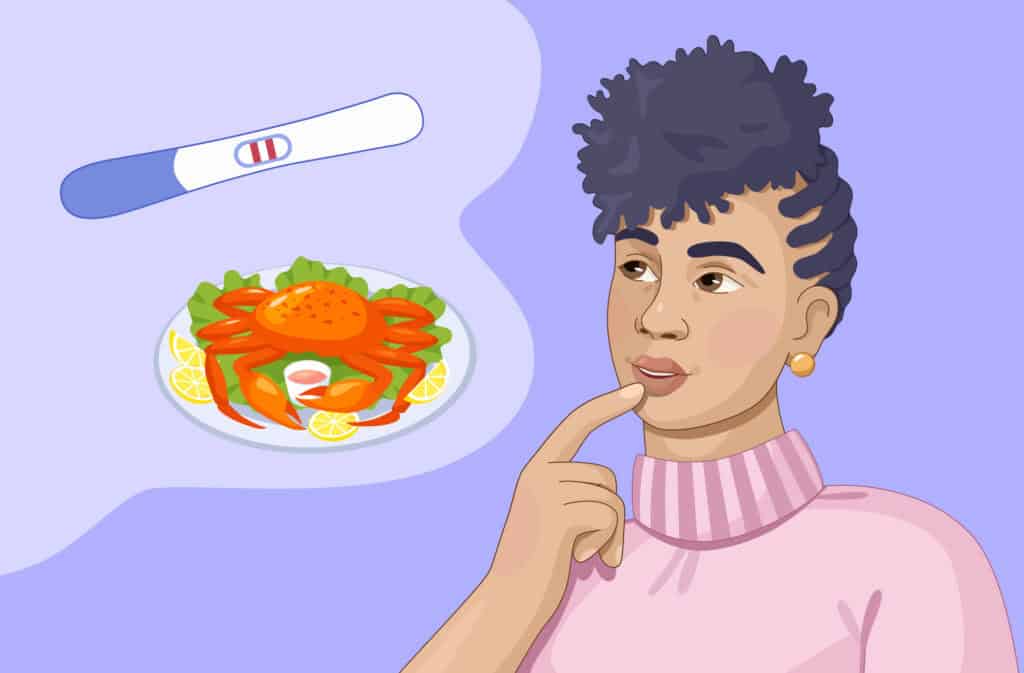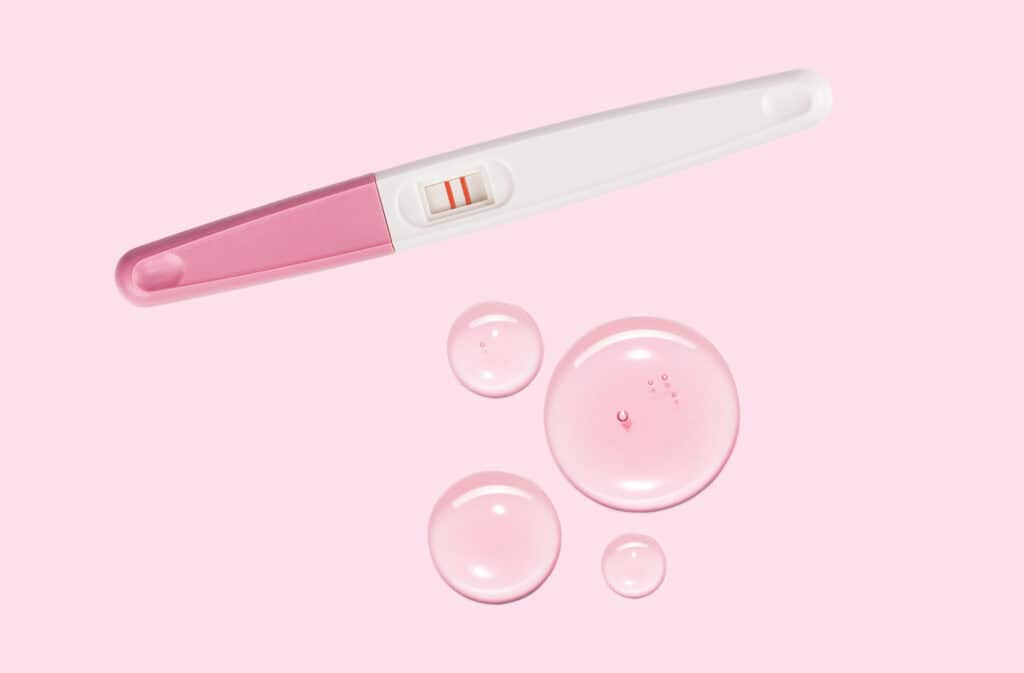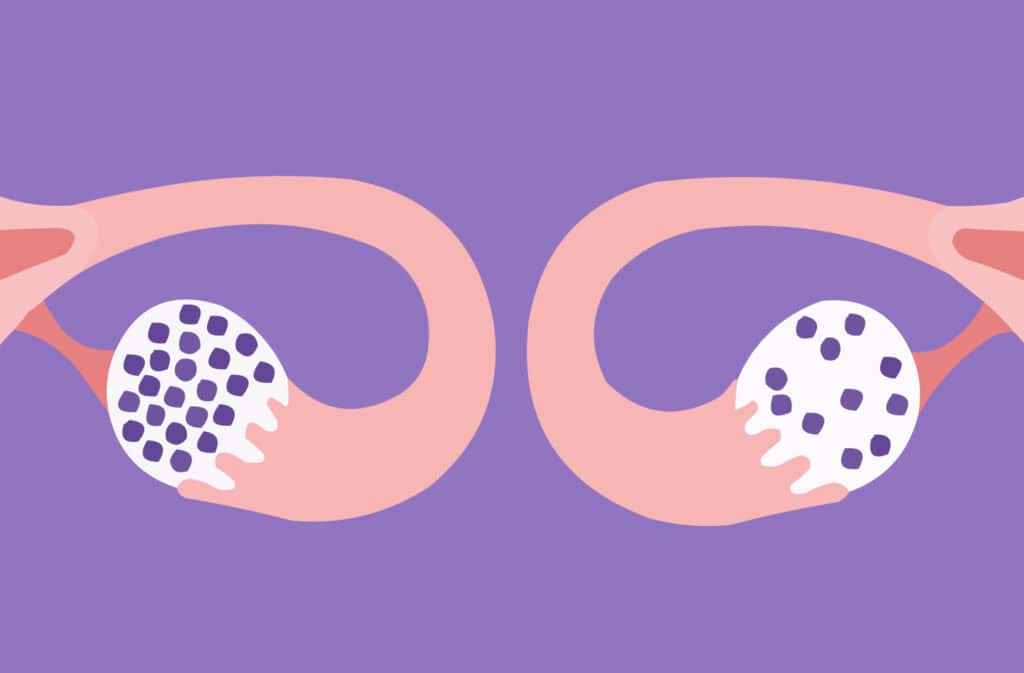Femia > Health Library > Pregnancy > Pregnancy health > Can you eat crab while pregnant? Safety guidelines and benefits
Can you eat crab while pregnant? Safety guidelines and benefits

- Updated Feb 10, 2025
- Published
CRAFTED BY HUMAN
Crafted by human At Femia, we provide accurate and up-to-date information at every stage of your journey, from trying to conceive, pregnancy and postnatal support. All content is created by a real person based on in-depth research and own professional experience. Femia ensures that you will receive expert advice, strict accuracy and a personalized approach from our authors/medical experts. Learn more about our editorial policy.
FACT CHECKED
Fact checked At Femia Health, we maintain the highest standards of editorial excellence in delivering content focused on helping you conceive, guiding you through pregnancy, and supporting you postpartum. Explore our content review principles to learn how we ensure the accuracy and quality of our health and lifestyle tips for every stage of your journey.
Yes, pregnant women can safely eat crab and crab legs as long as they are fully cooked. Crab is low in mercury and high in essential nutrients like protein and omega-3 fatty acids. Avoid raw or undercooked crab to reduce the risk of foodborne illnesses.
Seafood is a popular choice for many, but pregnancy can lead to questions about what is safe to eat. If you’re wondering, can you eat crab while pregnant, the good news is that crab is safe to eat during pregnancy when it’s fully cooked. Rich in protein and low in mercury, crab offers several nutritional benefits, but as with any seafood, it’s important to follow safety guidelines. This article will help you understand how to enjoy crab safely during pregnancy, along with answering related questions like can you eat crab legs while pregnant.
Femia offers a personalized meal plan according to your pregnancy journey
Can you eat crab while pregnant? Understanding the safety
Crab is considered safe to eat during pregnancy as long as it’s fully cooked. Both crab meat and crab legs are classified as low-mercury seafood, making them a safer option compared to high-mercury fish like swordfish or king mackerel. Mercury is a neurotoxin that can affect fetal brain development, so sticking to low-mercury seafood is key during pregnancy.
While crab is safe, it’s important to avoid raw or undercooked crab, which can carry harmful bacteria and parasites that pose a risk to both mother and baby. Fully cooking crab to an internal temperature of 145°F (63°C) will kill any bacteria, making it safe for consumption.
Can you eat crab legs while pregnant?
Yes, you can safely eat crab legs while pregnant as long as they are thoroughly cooked. Crab legs are a great source of lean protein, omega-3 fatty acids, and essential vitamins and minerals like vitamin B12, zinc, and iodine, all of which support a healthy pregnancy.
Just like with crab meat, the safety of crab legs depends on ensuring they are properly cooked. When dining out, confirm with the restaurant that the crab legs are fully cooked. If preparing them at home, steam, boil, or bake them until they are firm and no longer translucent.
Nutritional benefits of eating crab during pregnancy
Crab is packed with nutrients that are beneficial during pregnancy. Here are some key benefits of including cooked crab in your diet:
- Lean protein: Crab provides a high amount of protein, essential for fetal growth and muscle development.
- Omega-3 fatty acids: These healthy fats are important for the development of your baby’s brain and eyes.
- Vitamin B12: This vitamin supports the development of the baby’s nervous system and can help prevent certain birth defects.
- Zinc and iodine: Both minerals are important for fetal development, particularly for brain and thyroid function.
Eating crab in moderation can help you meet your nutritional needs during pregnancy while keeping mercury exposure low.
👉Find out more: Why choline is essential during pregnancy: Benefits, sources, and supplements
Can you have crab while pregnant? Tips for safe consumption
Here are some guidelines to follow when eating crab during pregnancy to ensure it’s safe:
- Cook thoroughly: Always ensure that crab and crab legs are fully cooked to 145°F (63°C) to kill any harmful bacteria or parasites.
- Avoid raw crab: Raw or undercooked crab can carry bacteria like Listeria or parasites that can lead to infections during pregnancy.
- Limit portion sizes: While crab is low in mercury, it’s important to eat it in moderation. The FDA recommends pregnant women consume 8-12 ounces of low-mercury seafood per week. This can include crab, crab legs, and other seafood like salmon.
- Watch for additives: Be mindful of how the crab is prepared. Avoid dishes with high levels of sodium or unhealthy fats, such as deep-fried crab or crab with heavy butter sauces.
👉Find out more: Which food can cause miscarriage: A comprehensive guide
Risks of eating crab during pregnancy
While crab is generally safe, there are a few risks to be aware of:
- Foodborne illnesses: As with any seafood, undercooked or raw crab can carry harmful bacteria such as Listeria or Salmonella. Pregnant women are at a higher risk for foodborne illnesses, which can lead to serious complications like miscarriage, stillbirth, or preterm labor. Always ensure that crab is fully cooked.
- Mercury exposure: Although crab is low in mercury, it’s still important to limit your intake of seafood to 8-12 ounces per week to avoid excessive mercury exposure. This can help protect your baby’s developing nervous system.
- Allergic reactions: If you have a shellfish allergy, avoid crab, shrimps and other shellfish during pregnancy to prevent allergic reactions.
By sticking to cooked crab and following recommended portion sizes, you can minimize these risks.
Femia offers a personalized meal plan according to your pregnancy journey
Questions from the Femia community
Can I eat imitation crab while pregnant?
Yes, imitation crab is generally safe to eat during pregnancy as it is made from cooked fish, usually pollock, and is low in mercury. However, check for additives and ensure that it is served hot, not cold, to avoid the risk of bacterial contamination.
Can I eat crab cakes while pregnant?
Yes, as long as the crab cakes are fully cooked and served hot. Crab cakes are often made from cooked crab meat, but ensure they are thoroughly heated, especially when reheating leftovers, to reduce the risk of bacteria.
Is it safe to eat crab during the first trimester?
Yes, crab is safe to eat during any trimester, including the first trimester, as long as it’s fully cooked. Its nutrients, like omega-3 fatty acids and protein, support fetal development throughout pregnancy.
Can I eat crab dip while pregnant?
Yes, you can eat crab dip if it’s made with fully cooked crab and served hot. Cold crab dip should be avoided due to the potential for bacterial contamination.
The bottom line
Crab is a safe and nutritious seafood choice for pregnant women when it’s fully cooked. Rich in protein, omega-3 fatty acids, and essential vitamins, crab can support a healthy pregnancy when consumed in moderation. Whether you’re enjoying crab legs, soft-shell crab, or crab cakes, make sure the crab is cooked thoroughly to avoid the risk of foodborne illnesses. Stick to the recommended 8-12 ounces of low-mercury seafood per week, and enjoy crab as part of a balanced pregnancy diet.
References
- U.S. Food and Drug Administration. “Eating Fish: What Pregnant Women and Parents Should Know.” FDA, 17 Dec. 2020, https://www.fda.gov/food/consumers/eating-fish-what-pregnant-women-and-parents-should-know.
- Mayo Clinic. “Healthy Pregnancy Diet: Essential Nutrients.” Mayo Clinic, 12 Aug. 2023, https://www.mayoclinic.org/healthy-lifestyle/pregnancy-week-by-week/in-depth/pregnancy-nutrition/art-20045082.

Discover the possibilities of getting pregnant from precum during ovulation. Understand the factors influencing conception and how to reduce risks with reliable contraception.

How many eggs do women have and how does their amount change with age? Here is a guide to help you get a better understanding of your fertility.

What are the chances of getting pregnant while breastfeeding? Discover the signs of returning fertility while breastfeeding and understand the science behind it.

